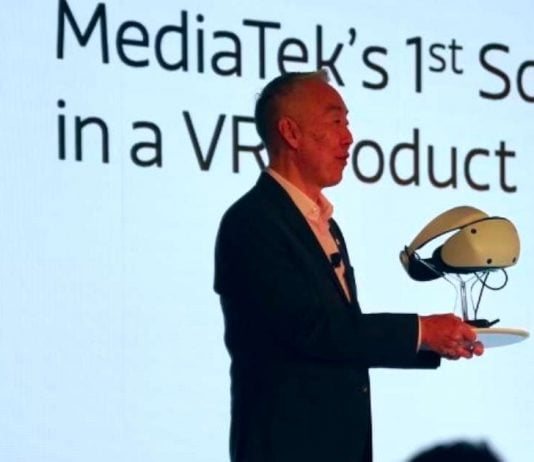Over the past couple of years, MediaTek has established itself well in the chipset industry. Following the success of the flagship SoC for smartphones competing with renowned giant Qualcomm, MediaTek is now entering the VR chipset industry with the launch of its first chipset specifically built for VR headsets.
MediaTek announced that it would provide the chip to be used in the PS VR2 headset and PS Sense controllers at the recent executive summit.
Vince Hu, CEO of MediaTek, announced the partnership with Sony during the event. This is a significant step forward for the company, especially since Qualcomm’s chips power other standalone and networked VR headsets.
The first PlayStation VR was very successful, providing console users with an easy and affordable way to experience virtual reality. Sony picked MediaTek because it can develop processors with excellent performance, low latency, and great efficiency.
The Sony PlayStation VR2 virtual reality headset is based on the MediaTek single-chip system. The headset uses a unique semi-custom platform instead of some of the platforms familiar to us from smartphones. Moreover, this is MediaTek’s first SoC for VR.
Unfortunately, the technical characteristics of the platform are not yet available. However, it is obvious that the PlayStation 5 itself is responsible for processing the headset’s basic data, so MediaTek’s solution should not stand out for some high performance.
If you remember the current generation PS VR, then there is no dedicated single-chip system at all — the only Nuvoton NUC123SD4SN3 NUC123 microcontroller based on the Cortex-M0 core.
The PS VR2 has two 2000×2040 displays (one for each eye) with a refresh rate of up to 120Hz. Between the headset and the controllers, there are also a variety of cameras and position-tracking sensors. As a result, MediaTek’s silicon must be strong enough to run these trackers and push high-resolution screens, which is no simple feat.
Sony’s PlayStation VR2 will go on sale February 22, 2023. The price of the device will vary by region, but it will cost $549.99 in the United States.
This year Qualcomm has also partnered with Meta to create chipsets for the next generation of Oculus Quest series VR headsets.


